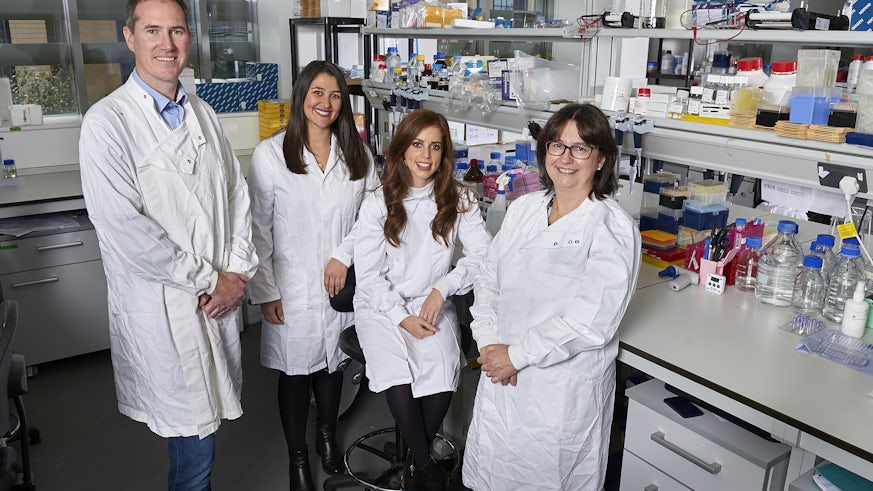New funding to help find new gastric cancer therapies
19 October 2018

A major investment from the Medical Research Council will help scientists at Cardiff University investigate new treatment strategies for gastric cancer.
Over £600k has been awarded to Dr Toby Phesse’s Lab at Cardiff University’s European Cancer Stem Cell Research Institute, to fund their work looking at the role of cell signalling in cancer.
“Gastric cancer is the fourth most common cause of cancer-related death, with around 700,000 cases diagnosed annually. We urgently need to develop better cancer therapies to improve patient outcomes.
“Compared to other organs, like the intestine or breast, how the tissues work in the stomach is poorly understood. By understanding what cellular and molecular mechanisms occur in cancer, we can identify new therapeutic targets for this disease.
“We have been looking into how cells communicate with one another in stomach tissue, specifically looking at how they use a cell signalling pathway called Wnt signalling. Ten different receptors are involved in this signalling pathway, called Frizzled receptors.
“In collaboration with our international colleagues Elizabeth Vincan in Australia, Nick Barker in Singapore and Hans Clevers in Holland, we recently demonstrated that one of the Frizzled receptors, Fzd7, is the predominant receptor transmitting critical Wnt signals to regulate stem cell function in the intestine and the stomach,” said Dr Toby Phesse, Research Fellow at Cardiff University.
The grant from the Medical Research Council will fund research to determine whether Fzd7 can be targeted to treat gastric cancer.
“Preliminary data shows that the growth of gastric tumours can be blocked through the genetic deletion of Fzd7, making it a potential target for a new treatment for gastric cancer. We now aim to build on these exciting results by targeting Fzd7 using several pre-clinical models of gastric cancer, and examining the molecular mechanism underlying these observations to better understand the biology of this disease.
“With this funding and in collaboration with our industrial partners Oncomed Pharmaceuitcals, we are also examining if an antibody that targets Fzd has anti-tumour effects in gastric cancer.
“This antibody, Vantictumab, is already in clinical trials for breast and lung cancers, and our pre-clinical studies will directly inform new potential clinical trials for the use of this drug in gastric cancer patients.
“As a charity, the European Cancer Stem Cell Research Institute relies on support to continue its work investigating novel therapeutic strategies in a range of cancers. The Medical Research Council funding will help us to continue this research, which is transforming the way we treat cancer towards a more targeted approach” added Dr Toby Phesse.



